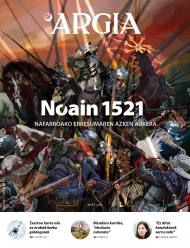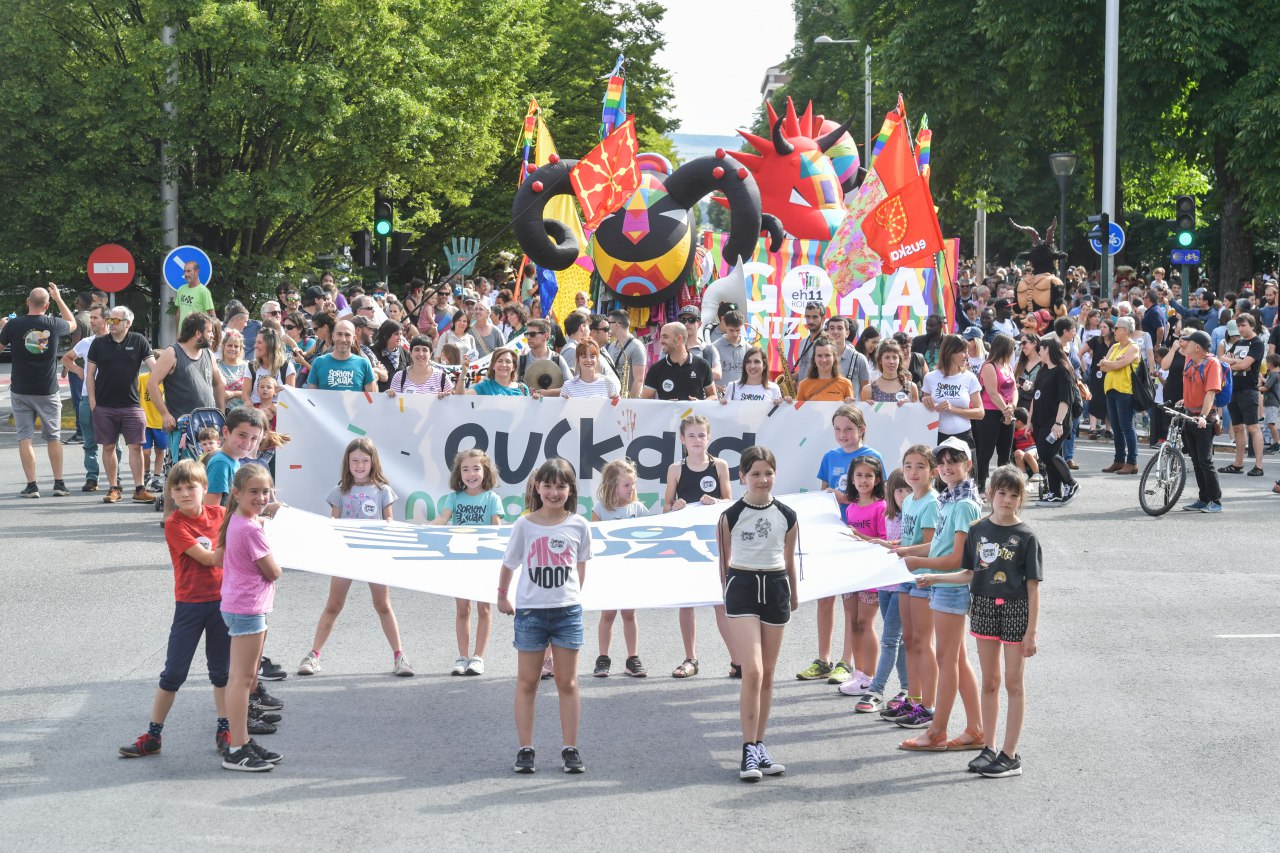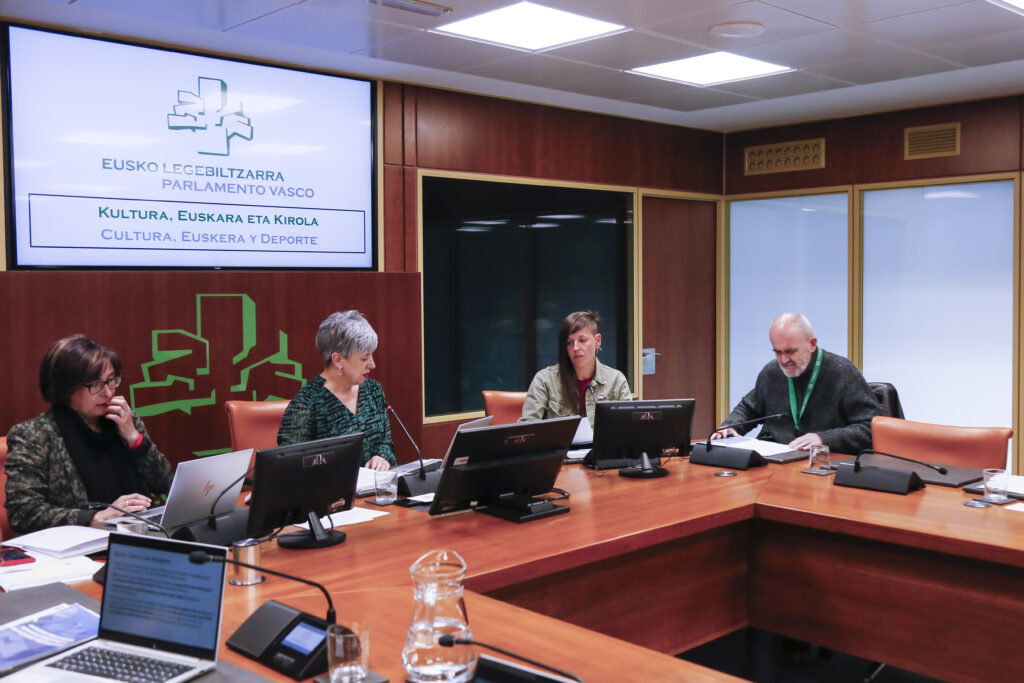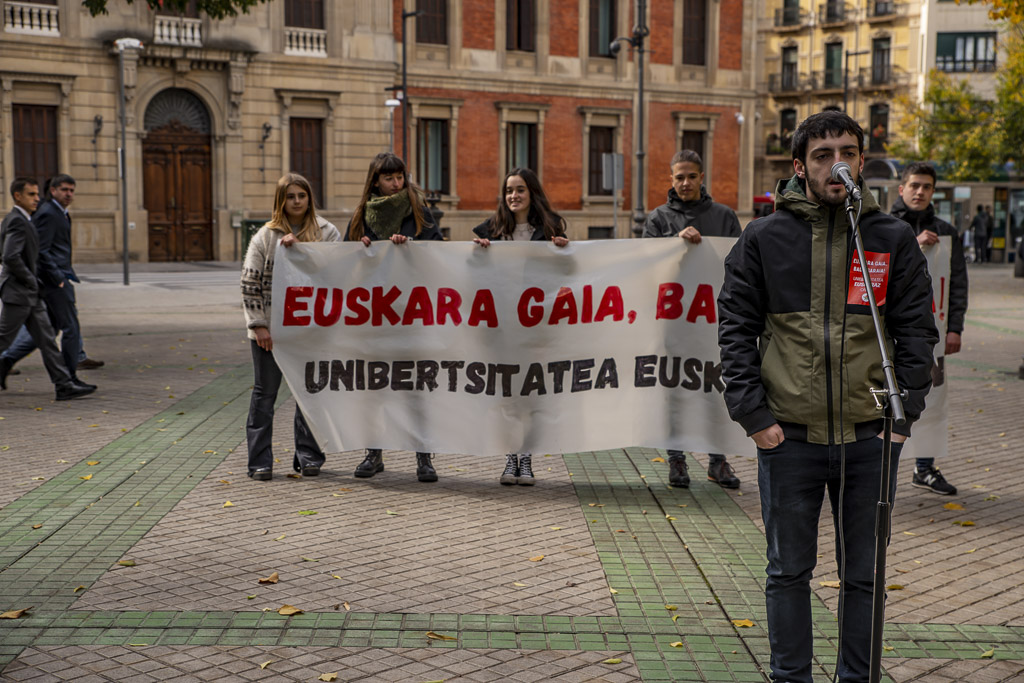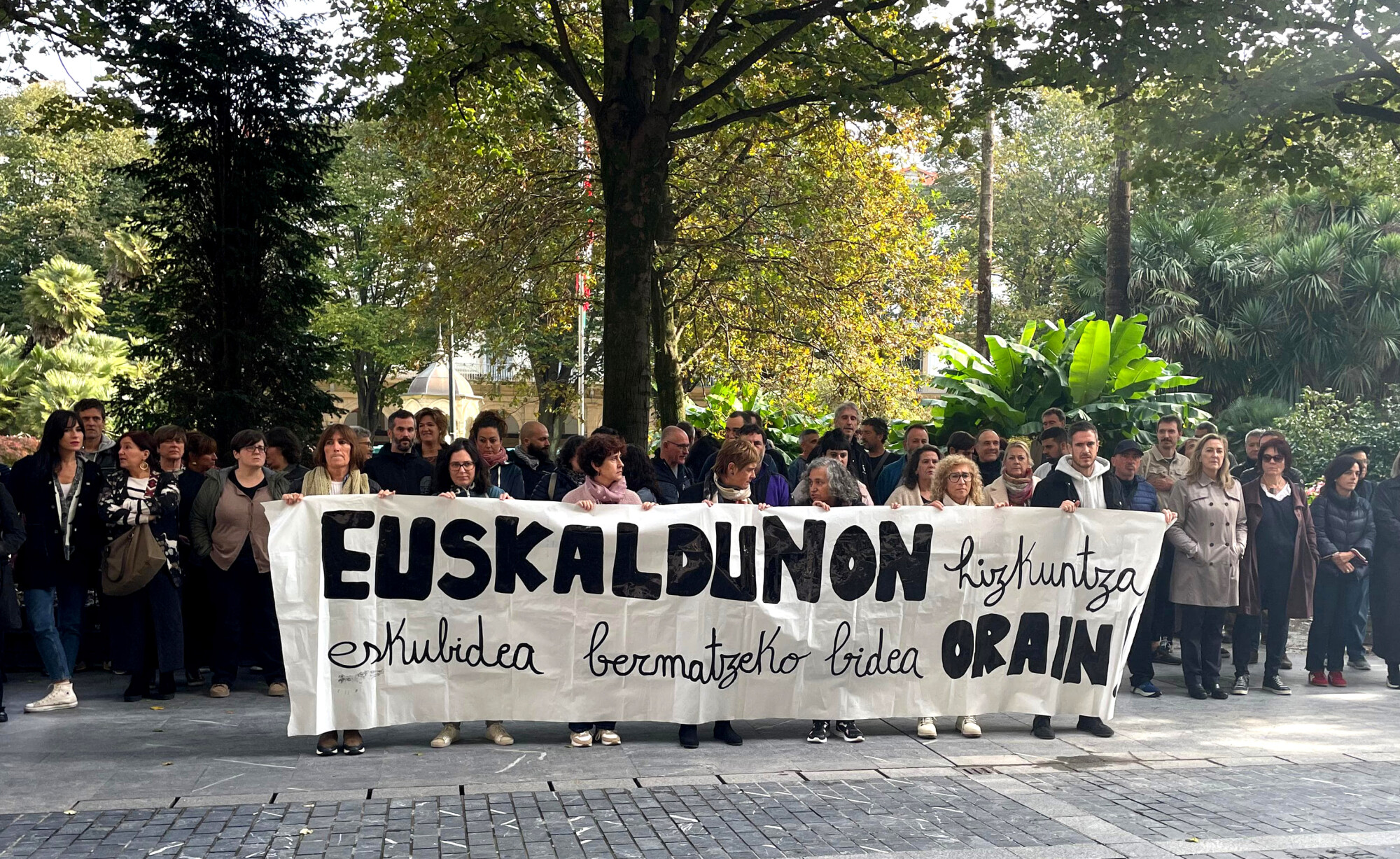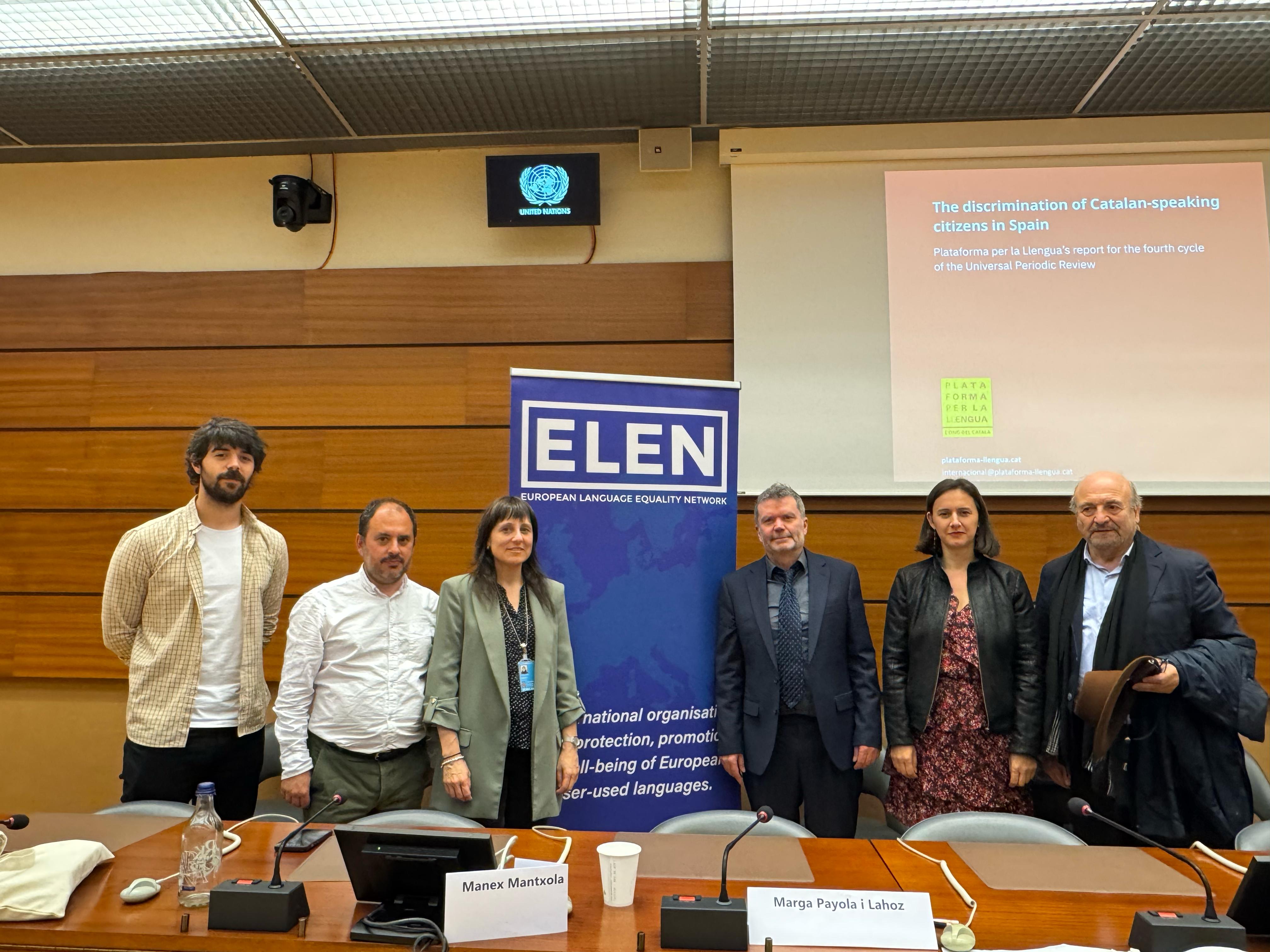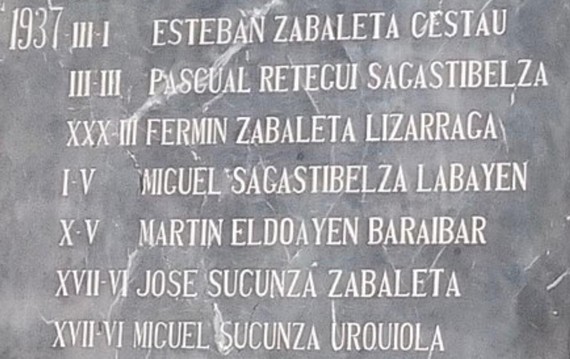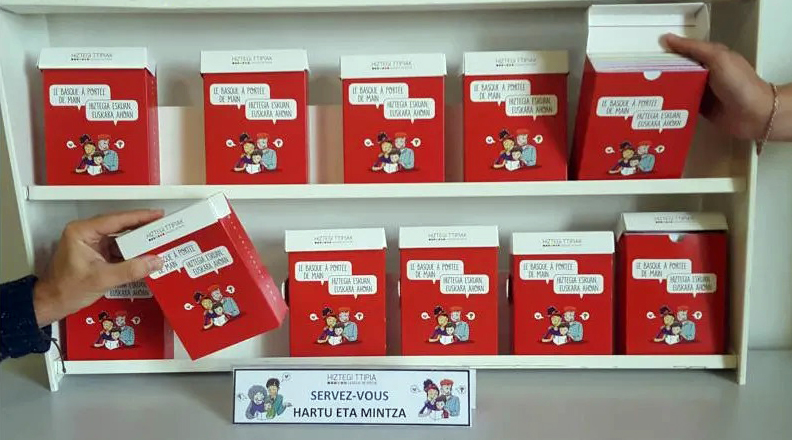“We should not create a colocal Euskara that is the mirror of Castilian”
- Asier Larrinaga (Bilbao, 1965) started working as a linguistic corrector at EITB while studying Basque philology. Eight years later, in 1999, he was appointed head of the Basque Service of EITB, in which he has been working since then. “We are a small service for the dimension that this company has,” he acknowledged. Last autumn he published the Basque colloquial manual and we have used this excuse to address it.

The need to make a book with the colloquial variants of a language... Isn't it a little sad?
No, they also exist in other languages. The union of dispersed material is always practical. We have had the issue of the colloquial Basque for some time. ETB started making domestic production series quite late, I don't remember the year, but it was the 1990s. And since then we have been taking steps to the Basque country to use this type of product. At first we did what we could, and then we began to reflect more. But this reflection is a new issue. I do not remember the year of the beginning of Goenkale [1994], and when he started it in a way, I do not mean that it emerged without reflection, there was an approach, but far from the concerns of colloquiality, the concerns were fulfilled. Then a spin off was made, the Beginners, and then we started to think that a way of speaking of our own was needed, along the lines of colloquiality.
So, was Goenkale's language sometimes too artificial?
He wasn't a colloquial Basque. The Basque was literary, books, and I do not say this in a pejorative way. And one good thing about Goenkale was that the Basque of books was invented when it came to taking him to the oral.
Did this happen because there were no clear models of colloquial language?
No, simply because it was decided to do so. The question is what colloquiality is, sometimes it is not very well understood. Colloquiality is a language that expresses the existence of a relationship of informality and friendship among speakers. The language used by two friends without any social or respectful norms. It's not for all situations. They mix many times and you have to separate them well, colocal and low. The co-local has to do with the relationship between the speakers and the lower level with the care or not of the language. The lower level is contrary to care. And colocal, opposed to formal.
For example?
The lower level is to say “I’ve seen you.”
Some call it “maleuskera.” It is not paying
attention to language. And colocal is something else. The normal thing is to say “I’ve seen you” in the colloquium.
“… it has no roll / Euskara clean”. [Laughter] One feature of the colloquial language is that you can talk very crudely, and that is why so many blasphons, blurry words are
introduced... It has been said that there is nothing like this in Basque, and it is not true. You have to explore, you have to search, and that's why it's important to do these kinds of books. On the other hand, it is true that in Spanish we say cowardities in a different way in Basque. Spanish is very raw and the most versatile language I know. If we put the measure there… We have some premises in the head. One, in Basque it is possible to speak colloquially. And not only that, it can also be done in a credible way. Many times it is said that where it is said in Spanish "I fuck in God", in Basque we have to put "arranopola". That's the usual topic. Credibility is given by other things. And there's blasphons and cracks of potolas. They may not have the strength of the Spanish-language forms, but they are hard. However, each language has its own characteristics. In English, for example, it does not say “I fuck in the virgin”. They adapt to “fuck” and “damn.”

And other premises?
Do so for all Basques, as far as possible. I know it is very difficult and not just because of the dialects. We, for example, have pushed for the words “mola du” to say “like”, of course, is the mole’s calque in Spanish. Sometimes there is no other way. In Basque we have insults and mockery, but in valuative expressions we are very poor. We don't have a lot of ways to say it "like," let alone colocal. And there are many in Spanish. In our case, we have to think about alternatives.
Does the opinion of the viewers come to you about the reception these have?
Sometimes yes. For example, I know a lot of people “have mola” don’t like it. But to others. Therefore, in that fact that it is for all Basques it is important that North-South is integrated into that, but not only that: we need models for the Basques of both before and now. We should not create a colocal Euskara that is a reflection of Castilian. We must strive to take care of what the Basque country has.
Many of the resources mentioned in the book come from Spanish… It is our
first reference, the one we have in our head. Our simplest means of borrowing, and that of most Basques, is Castilian. There are things from the North in the book, but we have to be realistic. In any case, loans must be taken, yes, but with sense.
on the cover of the Basque Colloquial manual, in the credo of Asier Larrinaga “the most important articles are universal fraternity, equality, knowledge sharing and the divinity of music”. You can also read that in 2019 he made his doctoral thesis. ETB analyzed the work done in the normalization of the Basque Country: “It has always been said that television in Euskera has been an important instrument for the normalization of Euskera, but in the scientific literature on the subject, the media, and especially the audiovisual media, have not been considered as important instruments until about the year 2000.”
Euskaraldiaren atarian, beste behin, Pantailaldia egingo da. Maiatzaren 6tik 15era iraungo du, eta euskarazko ikus-entzunezkoen kontsumoa sustatzea izango da helburua.
Baina non gaude, non dago euskara ikus-entzunezkoen mundu zabalean, nora goaz? Zein hutsune, zein erronka... [+]









